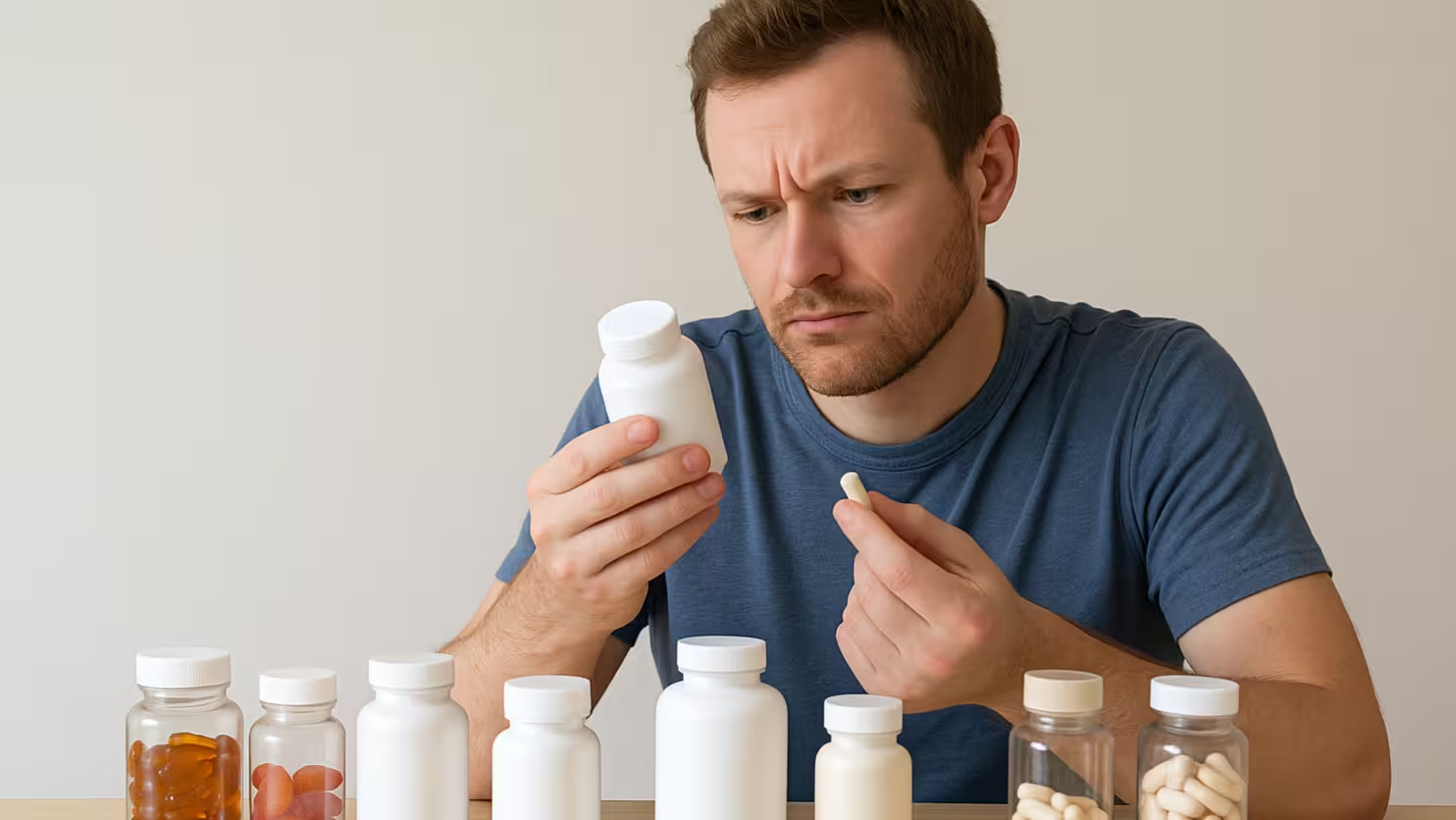Walk into any grocery store or pharmacy and you’ll find entire shelves stocked with vitamins, minerals, powders, and pills promising everything from stronger bones to better sleep. In the U.S. alone, the supplement industry is worth over $50 billion—and growing. But it raises a key question: do we really need all these supplements?
Let’s explore what modern science has to say. Spoiler alert: the answer isn’t a simple “yes” or “no.”
Table of contents
Supplements vs. Real Food
First, it’s important to clarify what supplements are meant to do. Supplements—whether in the form of capsules, tablets, or powders—are designed to fill gaps, not replace a balanced diet.
Whole foods offer a rich mix of fiber, antioxidants, and phytonutrients that pills can’t fully replicate. For example, an orange doesn’t just give you vitamin C—it also delivers fiber, potassium, and a host of beneficial compounds that work together in ways science is still uncovering.
Bottom line:
If you’re already eating a varied, nutrient-dense diet, you might not need most supplements.
When Supplements Make Sense
There are cases where supplements can be essential. Here are a few well-documented situations:
1. Vitamin D Deficiency
If you live in a cloudy climate, work indoors most of the time, or have darker skin, your body might not get enough sunlight to produce sufficient vitamin D. Low levels can weaken bones, impact mood, and reduce immune function.
Science says: A daily supplement of vitamin D3 can be beneficial—especially during winter months or if blood tests show you’re low.
2. Folate for Pregnancy
Folic acid (a form of folate) is strongly recommended for women who are pregnant or planning to be. It helps prevent birth defects in the baby’s brain and spine.
Science says: Prenatal supplements with folic acid are widely endorsed by doctors.
3. Vitamin B12 for Vegans
B12 is found naturally in animal products, so strict vegans are at risk of deficiency over time.
Science says: A B12 supplement is necessary if you don’t consume meat, dairy, or eggs regularly.
4. Iron for Certain Groups
Young women, especially those with heavy periods, may not get enough iron from food alone.
Science says: Iron supplements can help—but only when blood tests confirm a deficiency, as too much can be harmful.
Multivitamins: A Safety Net or Waste of Money?
Multivitamins are often marketed as daily insurance for your health. But most studies show that, for generally healthy people, multivitamins don’t dramatically lower the risk of chronic disease.
That said, they may still offer peace of mind if you:
- Have a restrictive diet
- Are recovering from illness
- Frequently skip meals
Just don’t view them as a substitute for real food.
What to Watch Out For
Not all supplements are created equal. Because supplements aren’t regulated as tightly as medications in the U.S., quality can vary widely between brands.
Red flags:
- Overhyped claims like “cures all diseases”
- No third-party testing or certification
- Mega-doses far above daily recommended intake
Tip:
Look for brands tested by organizations like USP, NSF, or ConsumerLab to ensure what’s on the label is actually in the bottle.
Can You Take Too Many?
Absolutely. More isn’t always better. Some vitamins and minerals can build up in the body and cause problems:
- Too much vitamin A can damage the liver.
- Excess iron can be toxic and cause serious side effects.
- Mega-doses of vitamin C or zinc can upset your stomach or interfere with other medications.
Always check with a doctor or dietitian before starting a new supplement—especially if you’re already on prescription medications.
Supplements for Performance and Energy: Hype or Help?
Many people take supplements hoping to gain energy, lose weight, or boost focus. Things like magnesium, omega-3s, and adaptogens (like ashwagandha) have grown in popularity.
Some do have research behind them—but the effects are often modest and work best when paired with a healthy lifestyle.
Translation:
You’ll feel more energetic from quality sleep, good hydration, and regular movement than from any powder or capsule.
Supplements can play a helpful role in modern health—but they’re not magic bullets. Think of them as tools—useful in certain situations, but not essential for everyone.
Start with your diet. Eat colorful fruits and vegetables, whole grains, lean proteins, and healthy fats. Focus on movement, sunlight, and sleep. If there’s still a concern, talk to a health professional and get tested before grabbing a bottle off the shelf.
Your body is designed to thrive—sometimes it just needs a little support, not a full cabinet of pills.






1 thought on “Are Supplements Necessary? What Science Really Says”
Comments are closed.